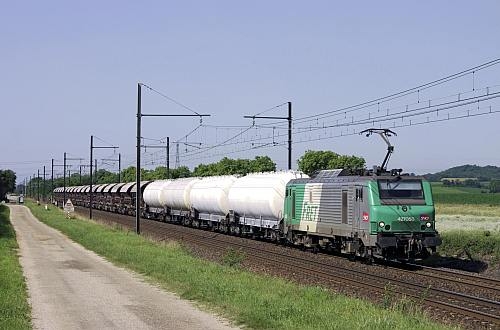The authority says that Fret SNCF engaged in several practices that hindered or delayed the entry of new operators into the railfreight sector, and a fine has been issued for two separate offences, with an injunction for a third transgression.
In its investigation, the authority found SNCF had used confidential information, gathered in its role as delegated infrastructure manager, for commercial purposes. Through its rivals' requests for train paths or visits to specific locations, SNCF has access to information on the strategy and business behaviour of these operators. This means it knows which competitors have bid for particular contracts, the train paths used, train lengths, transported tonnages, schedules, and traffic origin and destination points.
Dawn raids by competition authority officials on Fret SNCF offices found the operator had access to this information and was actively using it for commercial purposes. In a statement, the authority said that in some cases, Fret SNCF had aligned its market strategy with freight flows which were specifically targeted by its rivals, even contacting customers to ask why they were switching operators. The information was also used to define commercial strategy for specific regions or certain types of freight, and to develop "aggressive and targeted commercial offers".
SNCF says the creation of the independent directorate for rail traffic (DCF) means adequate safeguards are now in place to ensure such data is handled confidentially.
The second offence concerned attempts to prevent competitors from accessing the network. The authority ruled that Fret SNCF had restricted access to yards for new entrants and deliberately engaged in a large-scale policy of overbooking train paths.
In some cases this meant operators were unable to bid for contracts or honour those they had already won. For example, in 2008 Euro Cargo Rail (ECR) was unable to operate aggregates trains for Lafarge because Fret SNCF had booked all of the available paths. The authority says that this practice forced some operators to resort to alternative solutions which degraded the quality of services proposed to shippers and increased their costs. It cites the 2007 case of a contract to serve a quarry at Vignats, where ECR was forced to adopt night operations and carry out final delivery to the customer by lorry.
In 2006 when the French railfreight market was first liberalised, SNCF also overbooked high-capacity EX wagons with its own wagon leasing subsidiary, at that time the only provider of such vehicles in France, to restrict their availability to other operators. These wagons were deemed to be an essential resource to new entrants, but the authority says both ECR and Colas Rail were forced to use lower-performance wagons until they were able to acquire their own EX wagons in 2008. This allowed SNCF to retain some aggregate customers who contemplated switching to other operators.
In addition, the authority found SNCF had engaged in predatory pricing and operated some services at prices lower than the incurred cost with the aim of artificially preventing competitors from entering the market. In 2007, Fret SNCF was offering prices as low as 20% of those of new entrants, cutting rates for its most profitable flows at a time when the freight unit was facing heavy and recurring losses. However, the authority has decided not to hand down a financial penalty on this point and has instead issued an injunction. This requires SNCF to establish an analytical accounting system within 18 months, which will allow precise identification of the costs incurred by its trainload freight business. It will also be required to ensure that prices for trainload services cover their operating costs within three years.
Eight of the 13 complaints brought by open-access operators against SNCF were not upheld, including a charge that it poached staff from Veolia Cargo and engaged in discriminatory practices in locomotive and wagon leasing.
In a statement issued on December 18, SNCF said it will carry out a detailed review of the authority's decision and says that many of the complaints relate exclusively to the period 2006-08 and could not be repeated under the current structure.

